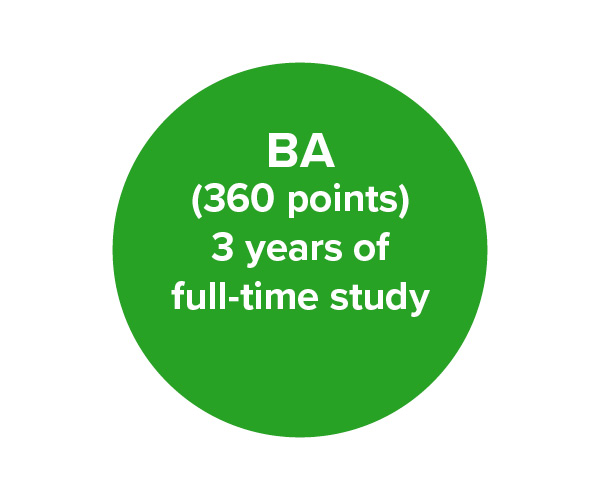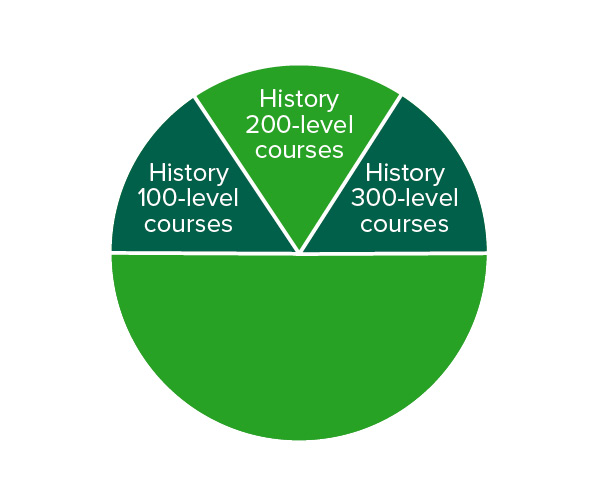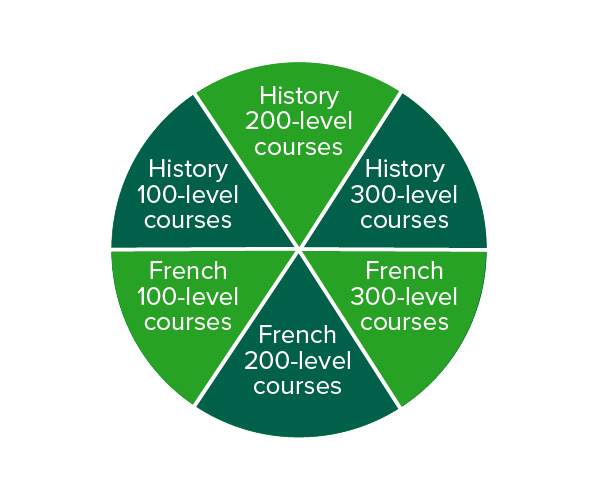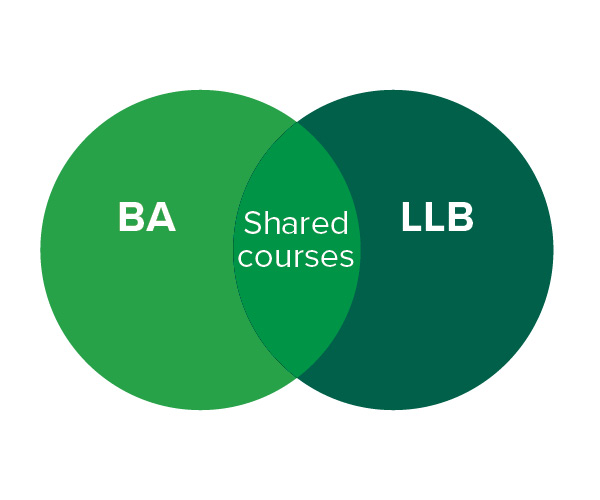
Degrees
A degree is a qualification awarded when you complete a programme of university study. Your first university degree is called an undergraduate, or Bachelor's degree. Each degree has its own set of requirements that you need to complete in order to graduate.
A typical degree requires 360 points and three years of full-time study. You’ll normally take around 120 points (six to eight courses of 15 or 20 points each) per year. Some degrees take longer—for example, a Bachelor of Laws takes four years.

Flexible vs structured
Some of our degrees are flexible—allowing you to mix and match different subjects to form one degree and even giving you the chance to choose majors from other degrees.
Some degrees are quite specialised and focus on one particular area of study. Most of your first-year courses in these degrees are already set, which leaves a small amount of space for elective courses.

Majors
120–150 points
Majors are the subject(s) you focus on throughout your degree. For example, you can take a Bachelor of Arts with a major in History. You will take courses in your major subject through to your final year. Your major will normally make up about a third of the courses in your degree. Some majors also offer specialisations, which allow you to focus more on a particular area within the subject.

Double majors
A double major allows you to focus on two subjects within one degree—for example, a Bachelor of Arts with a double major in History and French. This requires the same number of points as a degree with only one major, and should not take any extra time.
Some of our degrees let you take a second major from another degree—for example, you can do a Bachelor of Science with a double major in Physics and Japanese.
Minors
In some of our degrees, you can take a minor. A minor is similar to a major, but requires fewer courses, particularly in your second and third years. Having a minor is optional in most degrees.
Minors consist of 60 points at 200 level or above, with at least 15 points at 300 level. You’ll need to take courses in the subject at 100 level to ensure prerequisites for 200 and 300 level are met. Watch the video at the bottom of this page for examples of how a minor works.
Courses
Courses are blocks of work that are taught over one or sometimes two trimesters—they’re often referred to as ‘papers’ by other universities.
Each course is taught at a certain level: 100 level is first year, 200 and 300 level are more advanced, although there are some exceptions.
Electives
If you still have room in your programme, you can include courses from other subjects in which you are interested (often called electives).

Conjoint and double degree
Conjoint and double degrees allow you to complete two degrees in a shorter amount of time as courses can be cross-credited. For example, a conjoint Bachelor of Arts and Bachelor of Laws could be completed within five years, rather than seven years.
Note that not all degrees can be done conjointly. Our flexible degree structure means that many students will be able to fit all their subject choices into one degree by including a double major or minors/electives.
Undergraduate degrees
Flexible, or structured? Learn more about the different types of undergraduate degrees.

